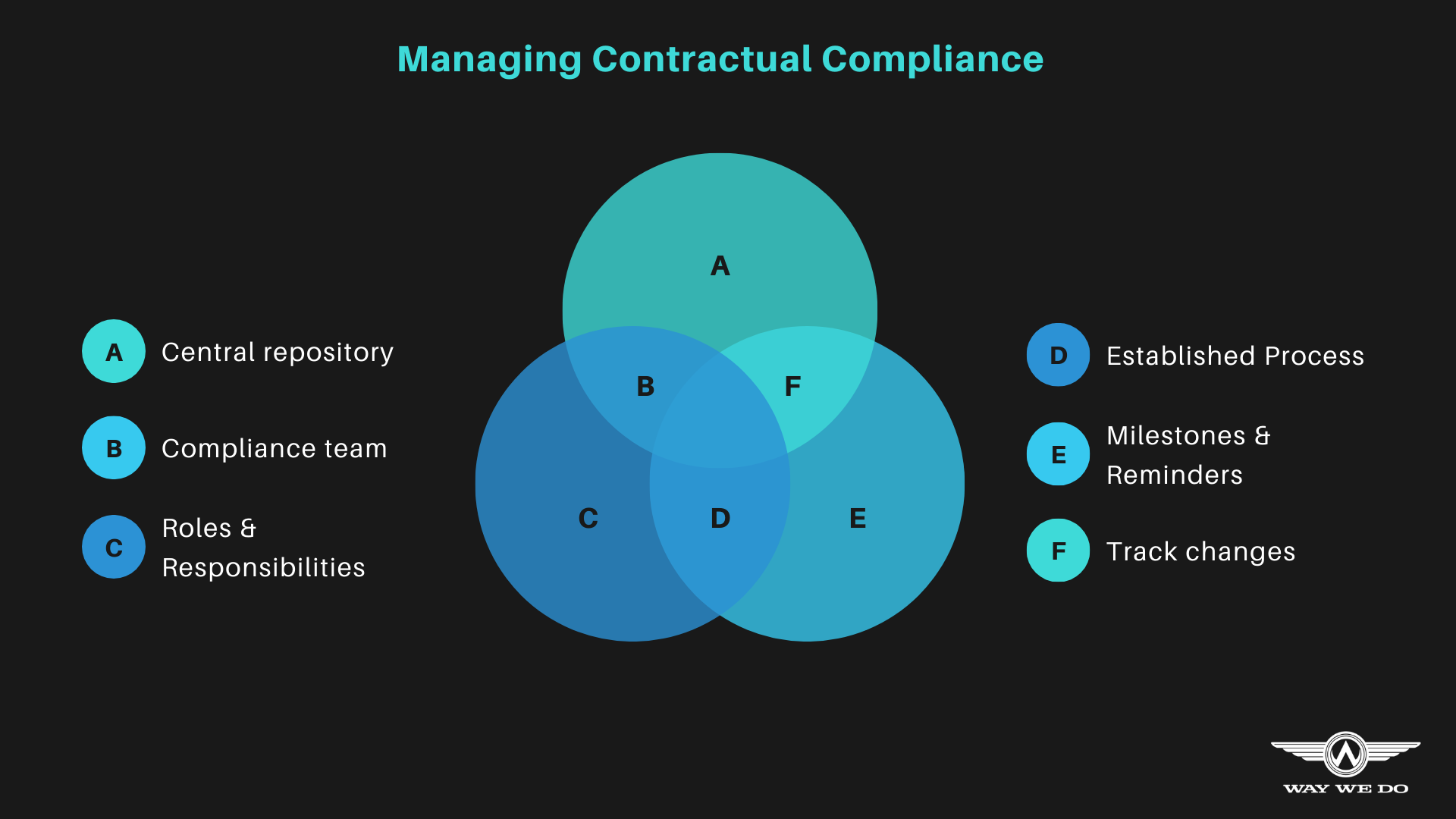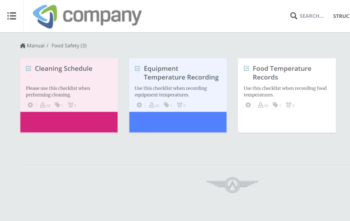People often equate contractual compliance with something that’s reserved for big government contracts. But you are, as an organization, both a supplier and a consumer of products and services, so it’s just as important for you to manage your contracts efficiently and avoid any consequences that could potentially damage your business.
Contractual compliance is a form of management that ensures each party to the contract meets their agreed obligations and performance standards. It also ensures the agreement is conducted in an appropriate legal manner.
Contractual compliance benefits
As well as protecting each party in the agreement, there are other very good reasons to practice contractual compliance.
- Failing to comply with the rules set out in a contract can see your business face hefty financial consequences. Contractual compliance helps you avoid the unnecessary costs of fines, penalties, or damages.
- Contractual compliance supports customer and partner relationships and retention. Your clients and suppliers expect any organization they do business with to respect and commit to the rules laid out in their agreements. If you don’t follow good contract management practices, your business’s reputation will suffer.
- Among other things, productivity and profitability are what keeps your doors open. Any disruptions to this as a result of compliance issues can severely impact your business – including closing your doors, temporarily or permanently.
Here’s how to manage your contractual compliance
1. Follow set standards and procedures when storing agreements
It’s important to have a central repository for all your contracts. You can’t always rely on being able to hold on to physical copies. An Aberdeen Group study found that only 43% of best-in-class organizations have central repositories for their contracts. A central repository makes it easier to find contracts and assures their confidentiality by giving access to authorised employees only. A cloud-based repository allows you to grant permissions and implement any other necessary security features to keep your contracts and the information in them safe. It is also an excellent disaster recovery tool.
Make sure you include contract templates for your most frequently used contracts, e.g. data processing agreements, in your repository.
2. Be aware of key milestones and set reminders
Every contract has milestones that must be met as part of fulfilling its obligations. It’s highly beneficial to set appropriately timed reminders for those milestones once all the relevant parties have executed a contract. This might be in the form of calendar events, setting up a checklist, or creating task reminders with Way We Do’s Checklist and Reminder tools. These will then send out alerts so the right people are aware of what needs to be done, and when, reducing any risk of non-compliance.
3. Establish a contract review process
Contract compliance doesn’t end after execution, or even after a project is completed. As a product and/or service provider, your warranty process and obligations rely on you continuing to adhere to your contract obligations. Conduct a periodic contract review to make sure you’re still complying with ongoing contracts you’re executing, as well as any closed contracts to confirm all obligations were carried out as expected.

4. Define process owners, roles and responsibilities
Make sure every member of your team is aware of their role in maintaining your business’s contract compliance. This means clearly defining everyone’s duties and responsibilities. Too often, things fall through the cracks simply because employees were unaware of what was expected of them. Use their role descriptions in your Way We Do account to clearly set out what processes they own, and what duties and responsibilities they need to carry out.
In addition, establish clear processes for how you manage contractual compliance in your business. There are a number of tasks you’ll need to complete before executing a contract. Make sure they’re completed correctly, and that your team can uphold compliance standards, by completing an Activated Checklist in Way We Do. Rarely are two contracts ever the same, but there will be some similar activities in each case your team can carry out each time to keep things consistent, and compliant.
5. Keep up with market changes to maintain compliance
In business, we know the only constant is change. This could mean changes in legislation that might affect how you deliver your services, or consumer laws that you need to integrate into updated contract terms. Make sure you have the support of the appropriate legal counsel – ideally, someone with seasoned experience in Consumer Law or Business Law – to help you manage any changes or updates you need to make to your contracts.
6. Appoint a Contract Compliance Manager
If you don’t have the resources to hire a dedicated staff member in this role, assign it to someone on your existing team. This person should be a member of your leadership team, possibly with the assistance of another senior manager, as they would typically be aware of any contracts the business is engaged in. Your Contract Compliance Manager would be responsible for executing contracts, maintaining records, and identifying any compliance problems. They would also provide guidance and training to the rest of your employees to make sure they all understand their roles and responsibilities in complying with contracts.
Contractual compliance = minimized risk
Accomplishing all of these things isn’t easy by any means, but they are an excellent starting point for implementing some good risk minimization practices in your business. The benefits aren’t just limited to risk reduction though, and maintaining high levels of continuous contractual compliance is a reasonable target, especially when your profits are on the line.





